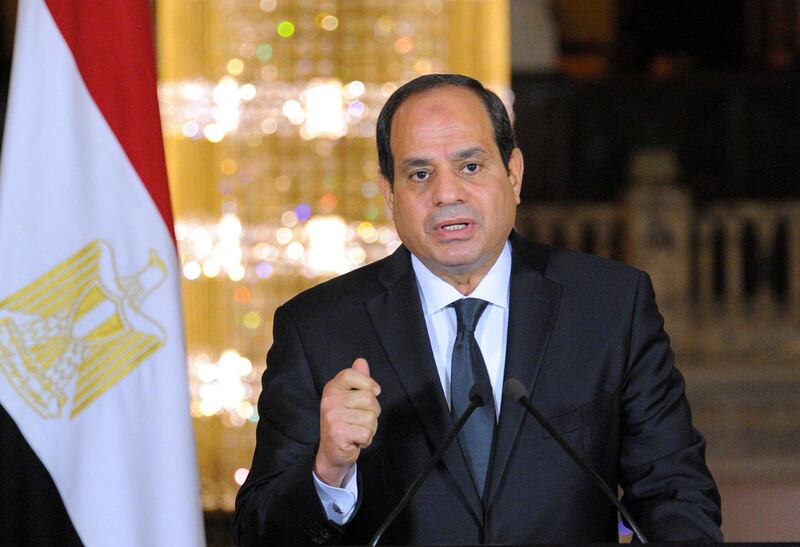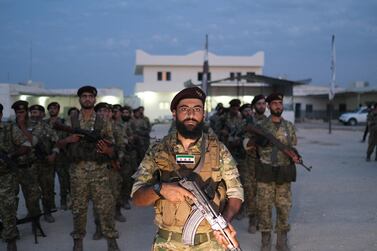Egypt’s president on Thursday summoned the country’s highest security body to a rare to meeting to review threats from “outside military intervention” in Libya after Turkey voted to send troops to Tripoli.
While well short of a declaration of war, the language in a brief statement suggested Egypt intended to do much more now to support Field Marshal Khalifa Haftar, whose Libyan National Army forces is fighting the UN-backed Government of National Accord in Tripoli.
Field Marshal Haftar has stated that he intends to free Tripoli from militant groups defending the capital.
The LNA has fought its way to the outskirts of the city in a campaign that began in April, but does not seem able to smash through the defences of the militias.
Thursday’s meeting of the National Security Council “adopted a package of measures on all levels to counter any threat to Egyptian national security".
It did not say what those measures would be, but President Abdel Fattah El Sisi has repeatedly warned in recent weeks that Egypt would not tolerate foreign domination of Libya.
"What takes place in Libya impacts on Egypt’s national security," Mr El Sisi has said.
But he said Egypt had no intention of sending troops to Libya.
Egypt shares a 1,200-kilometre desert border with Libya, an energy-rich North African nation that has been plunged into chaos since a 2011 uprising toppled and killed dictator Muammar Qaddafi.
Egypt blames the militants for deadly attacks in recent years against its security forces and minority Christians travelling to remote desert monasteries near the Libyan border.
It has on occasion announced air strikes against militants in eastern Libya, including some after the 2015 beheading by ISIS of 21 Coptic Christians.
Thursday’s statement followed reports that Turkey intended to transfer militants from Syria to fight alongside the militias in Tripoli.
Last Friday, it was reported that Ankara would send an ethnic Turkmen rebel group from Syria’s north-east and naval warships to defend the Libyan capital, while the Turkish military would provide support and training.
Mr El Sisi has been discussing Libya with foreign leaders in recent days, including US President Donald Trump, Russian leader Vladimir Putin, German Chancellor Angela Merkel and Emmanuel Macron of France.
There has been little said about the substance of these talks, but the language used in presidential statements in Cairo suggests that Egypt is rallying support for action it intends to take in Libya to stop Turkey from gaining a military foothold.
On Thursday, Mr Trump warned Turkish President Recep Tayyip Erdogan against any action in Libya.
In a call, he "pointed out that foreign interference is complicating the situation in Libya".
Meanwhile, a recent maritime agreement between Ankara and Tripoli’s government, dismissed as illegal by Cairo and others, significantly expanded Turkey’s continental shelf.
This infringed on Egypt’s plans with Cyprus and Greece to turn the region into a global energy centre after the discovery of natural gas in massive quantities in the eastern Mediterranean.
Turkey has been unhappy that it was left out of these plans and has been trying to force itself into the scheme.
It has explored for gas off the shores of Cyprus, of which Turkey has occupied a third since 1974 when it invaded after a short-lived, Greek-inspired coup.
The EU imposed sanctions on Turkey for drilling for gas in water off Cyprus, which is a member of the bloc.







